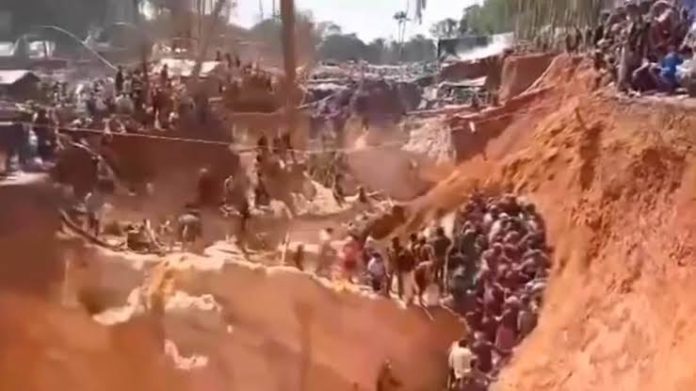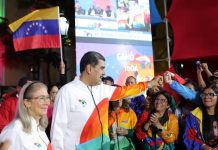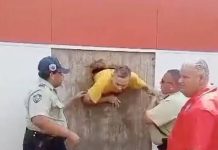At least 30 Venezuelans are feared dead after an unsanctioned 114-feet-deep gold mine collapsed, trapping over 100 men inside.
How it Happened
The wall of the open illegal gold mine, named Bulla Loca, collapsed on Tuesday, sparking a frantic rescue effort in the remote town of La Paragua, near the Venezuelan Amazon in Bolivar state.
Dozens of miners remain trapped as of Wednesday, with rescue teams dispatched to the remote area, mayor Yorgi Arciniega told told CNN en Espanol.
Arciniega said late Tuesday that he planned to take ‘some 30 caskets’ to a community near the mine, indicating that officials feared the death toll could rise into the dozens.

Efforts So Far
Harrowing videos of the scene show workers without proper equipment trying to help dig the trapped workers out of the mine, which can only be reached by an hours-long boat ride.
Venezuela’s socialist regime has increasingly relied on gold mined in Bolivar state to cover its expenditures and get around US sanctions on its oil industry, and has been accused of allowing criminal gangs to run free in order to profit from the mines.
About The Bulla Loca Mine
Local reports claim the Bulla Loca mine was opened last year and is under the control of several criminal gangs.
Relatives of the miners gathered in La Paragua, the closest community to the mine, to ask the government to send aircraft to the remote location to rescue the injured and recover bodies.

‘We are here waiting, please, for the government to support us with helicopters, planes, anything,’ said Karina Ríos, whose daughter’s father was trapped in the collapse.
‘There are quite a few dead, there are people wounded. Why don’t they give us support, where are they?’
Ríos said she is worried that bodies could quickly decompose because of the area’s conditions.
Criminal groups that run gold mines in the south of Venezuela have mutilated miners accused of stealing, extorted business owners and forced young children to work without security equipment as they tighten their grip on a region that is rich in minerals, Human Rights Watch said.












